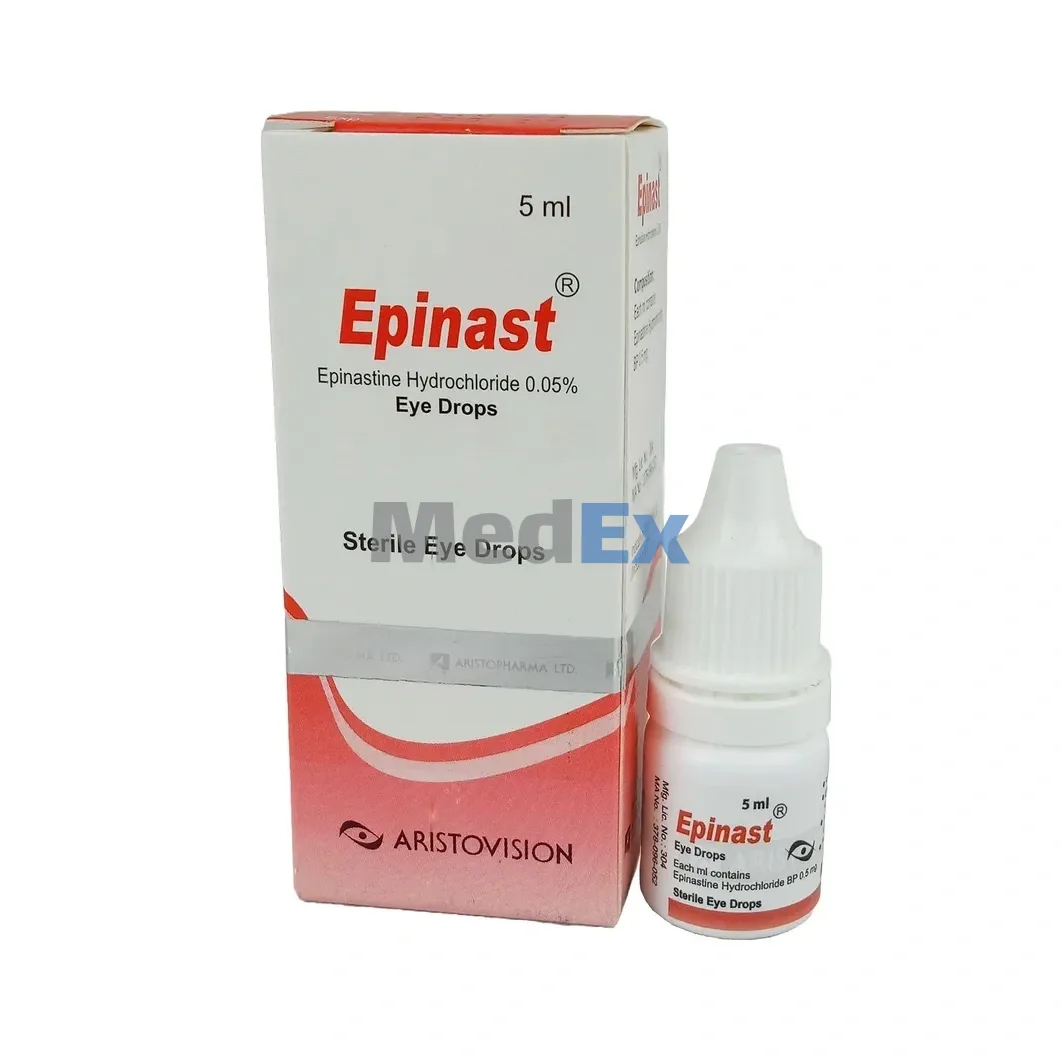5 ml drop:
৳ 150.00
Indications
Epinast sterile ophthalmic solution is indicated for the treatment of signs and symptoms of allergic conditions of the anterior segment of the eye.
Pharmacology
Epinastine is a topically active antihistamine that antagonizes both histamine H1 and H2 receptors. Moreover, it has mast cell stabilizing activity and prevents the release of inflammatory mediators from the blood vessel. Epinastine does not penetrate the blood-brain barrier and therefore is not expected to induce side effects on the central nervous system.
Dosage & Administration
Instill 1 drop in the affected eye(s) twice daily.
Contraindications
Contraindicated in patients who are hypersensitive to Epinastine or to any of the components of this preparation.
Side Effects
The most frequently reported side effects are mild burning sensation, folliculosis, hyperemia, pruritus, cold symptoms and upper respiratory infections.
Pregnancy & Lactation
There are no adequate and well-controlled studies on pregnant women. Epinastine should be used during pregnancy only if the potential benefit justifies the potential risk to the fetus. It is not known whether Epinastine is excreted in human milk. Caution should be exercised when Epinastine is administered to a nursing mother.
Precautions & Warnings
For ophthalmic use only. Patients should be advised not to wear contact lenses if their eye is red.
Use in Special Populations
Use in children: Safety and effectiveness in children below the age of 3 years have not been established.
Use in elderly patients: No overall differences in safety and effectiveness have been observed between elderly and other adult patients.
Use in elderly patients: No overall differences in safety and effectiveness have been observed between elderly and other adult patients.
Therapeutic Class
Ophthalmic Non-Steroid drugs
Storage Conditions
Store in a cool & dry place, protect from light. Do not use longer than one month after the first opening. Keep out of the reach of children.


